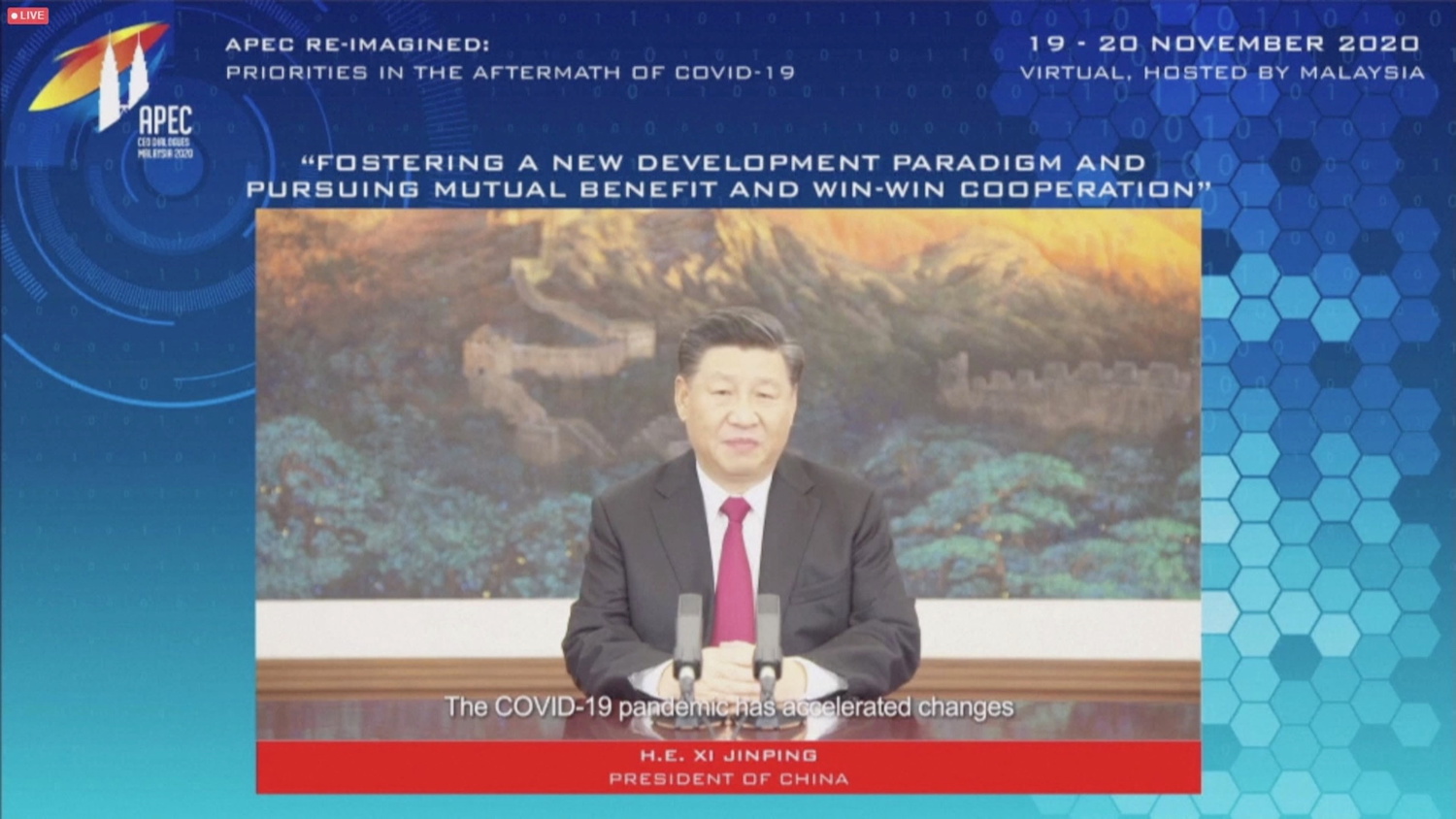(ATF) President Xi Jinping has promised to keep the Chinese economy open to trade and warned against countries that embrace protectionist measures.
Speaking in an address to leaders of the Asia-Pacific Economic Cooperation (APEC), Xi said his country would push for higher quality growth driven by technological innovation and through its “dual circulation” development approach.
The Chinese leader called for stronger policy coordination among the international community and said globalisation was “irreversible” and that China would not engage in “de-coupling”.
“Our new development pattern is not a closed domestic single circulation, but an open and mutually promoting domestic and international dual circulation,” Xi said.
“Openness enables a country to move forward while seclusion holds it back.
“China will actively cooperate with all countries, regions and enterprises that want to do so. We will continue to hold high the banner of openness and cooperation.
“We will further reduce tariffs and institutional costs… and expand imports of high-quality products and services from all countries.”
Xi’s keynote speech was delivered via video at the APEC CEO Dialogues, a day before the leaders’ virtual summit, which starts tomorrow (Nov 20).
Observers said Xi veered toward triumphalism about China’s economic “resilience and vitality” in recovering from the coronavirus, and that he appeared to have been buoyed by the signing of the world’s largest trade pact on Sunday.
The Chinese leader hailed the Asia-Pacific region as the “forerunner driving global growth” in a world hit by “multiple challenges” such as the coronavirus.
His remark about “decoupling” seemed to be a response to the trade policy of the Trump administration in the US, which has hit China with tariffs and tech restrictions.
‘High rhetoric’
AFP said Xi’s high rhetoric may raise eyebrows in capitals where China has either restricted trade, imposed sudden blocks or used its giant economy as a bargaining chip in wider geopolitical plays.
In the APEC region, Australian exports including beef, wine and barley have been disrupted to their largest market, as the diplomatic rumble over the origin of the pandemic as well as alleged antics by each other’s spies hammer relations.
The APEC forum, held online this year because of the pandemic, brings together 21 Pacific Rim countries including the world’s two biggest economies, and accounts for about 60% of global GDP.
It was not clear on Thursday if President Trump will address the summit, following his election loss to Joe Biden, or whether a high-level delegate might speak in his place.
The APEC gathering comes just days after China and 14 other Asia-Pacific countries signed the Regional Comprehensive Economic Partnership, which excludes the US. The RCEP is viewed as a coup for China and further evidence that Beijing is setting the agenda for global commerce as Washington retreats.
RCEP’s rival was the Trans-Pacific Partnership – championed by former Barack Obama – but Trump pulled out of it and the pact has been replaced by a watered-down alternative that the United States has not joined.
Xi had no direct words for President-elect Biden, whose ascension to office next year – while still clouded by Trump’s refusal to concede defeat – is seen as likely to see a more naunced extension of Washington’s current China policy.
Biden has been strident on China’s human rights record, from the Uighur Muslims in its Xinjiang region to Hong Kong’s democracy movement.
While he will he cast a more moderate presence on the global stage, analysts say he will seek deeper alliances to hem in Chinese tech – which the US says provides a back door to Beijing – and trade imbalances.
With reporting by Reuters and AFP
























